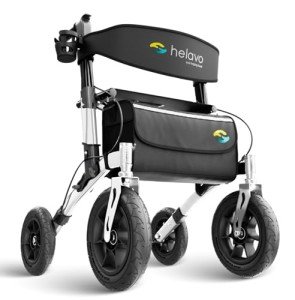Understanding Medical-Grade Walkers: A Comprehensive Guide
Medical-grade walkers are important mobility aids designed for individuals who need assistance in walking due to injury, surgical treatment, or age-related problems. Unlike standard walkers, medical-grade walkers are made with greater quality products and advanced features that deal with the specific requirements of patients and doctor. This blog post will explore the various kinds of medical-grade walkers, their advantages, features, and essential factors to consider when selecting one. We will also address some often asked concerns to help readers make knowledgeable choices.
Types of Medical-Grade Walkers
When it concerns mobility aids, comprehending the various types of walkers readily available can help users discover the best fit for their requirements. Here are the most common types of medical-grade walkers:
| Type of Walker | Description | Ideal For |
|---|---|---|
| Requirement Walker | Normally made of aluminum and including four legs, standard walkers supply tough support however need lifting to move on. | Users with strength in their arms |
| Two-Wheeled Walker | Comparable to basic walkers, but with two wheels on the front legs, permitting for easy movement without needing overall lifting. | Users who have some mobility abilities |
| Four-Wheeled Walker | Incorporating four wheels, these walkers frequently come with a seat and handbrakes, making them easy to maneuver over longer distances. | Users who may require to rest often |
| Rollator Walker | A type of four-wheeled walker developed for indoor and outdoor use, including a seat and storage bag for benefit. | Active users who need to manage tiredness |
| Knees Walker | Created for people with injuries to the lower extremities, this walker utilizes a padded platform for resting the knee while propelling forward. | Users recovering from foot or ankle surgical treatment |
Secret Features of Medical-Grade Walkers
Medical-grade walkers are created with various features that enhance use, safety, and user convenience. When choosing a walker, it's essential to try to find the following:
1. Adjustable Height
- Tailoring walker height is crucial for user convenience and safety. Walkers need to use several height settings to fit individual requirements.
2. Weight Capacity
- Always check the weight limit of a walker. Medical-grade walkers generally support a higher weight capacity than basic walkers, ensuring durability and stability.
3. Brake System
- For those thinking about four-wheeled walkers or rollators, a responsive brake system is essential. It enables for safety when stopping or resting and prevents unwanted movement.
4. Storage Options
- Lots of medical-grade walkers included connected baskets or bags for bring individual products, boosting usefulness for users who might wish to keep their hands complimentary.
5. Mobility Accessories
- Some walkers can be outfitted with extra accessories such as cup holders, trays, and walking sticks to boost mobility and convenience.
6. Portability
- Lightweight styles and easy folding mechanisms permit for hassle-free transportation and storage, making it simpler for users to take a trip or check out healthcare centers.
Benefits of Medical-Grade Walkers
Medical-grade walkers provide many benefits to users, supporting their mobility, security, and total lifestyle. Here are some crucial advantages:
Enhanced Safety
- The included support from a medical-grade walker offers stability, reducing the threat of falls, specifically for elderly users or those recuperating from surgical treatment.
Increased Independence
- Individuals utilizing walkers can traverse their environment with more confidence, enabling them to engage independently in everyday activities.
Post-Surgical Recovery Support
- Medical-grade walkers are important in rehab settings, as they assist patients in regaining mobility without jeopardizing safety.
Enhanced Comfort
- Features such as padded grips and adjustable heights guarantee that users can stroll comfortably and without strain on their joints.
Social Engagement
- With enhanced mobility, individuals can participate in social activities, fostering mental wellness and lowering feelings of isolation.
Choosing the Right Medical-Grade Walker
When selecting a medical-grade walker, a number of considerations can help make sure that the most proper design is selected:
- Individual Health Needs: Consulting with a health care specialist can help determine the best kind of walker based upon the individual's medical condition.
- Environment: Consider where the walker will be utilized most frequently (i.e., inside vs. outdoors). This will influence the option in between a basic walker and a rollator.
- Budget: Prices for medical-grade walkers can differ widely. It's essential to evaluate features against budget restraints to discover an ideal option without compromising quality.
- Caretaker Input: Input from caregivers or relative can also be valuable when evaluating the usability and handling of the walker.
FAQs About Medical-Grade Walkers
Q1: How do I understand if a medical-grade walker is the best option for me?
A1: It's best to seek advice from a doctor who can evaluate your specific needs and recommend a walker that suits your condition.
Q2: Can I customize the walker?
A2: Many medical-grade walkers offer adjustable elements, such as height and seat options, while others might support additional accessories.
Q3: How do I correctly keep my walker?
A3: Regularly look for any loose parts, clean any dirt build-up, and guarantee that the wheels and brakes are working appropriately for security.
Q4: Is it safe to utilize a walker on stairs?
A4: Generally, utilizing a walker on stairs is not advised. It's essential to look for assistance and take part in safer options when browsing stairs.
Q5: Can medical-grade walkers be covered by insurance coverage?
A5: Many insurance plans supply some coverage for medical-grade walkers. Contact Senior Walker about your particular policy and eligibility.
Medical-grade walkers are transformative mobility aids that promote self-reliance and security for people with physical challenges. By understanding the various kinds of walkers offered, their features, advantages, and how to pick the ideal one, users can be much better geared up to make informed decisions about their mobility requires. As always, consultation with a healthcare specialist is vital in finding a walker that takes full advantage of security and convenience. Whether for recovery or ongoing mobility support, the ideal walker can substantially boost one's lifestyle.

